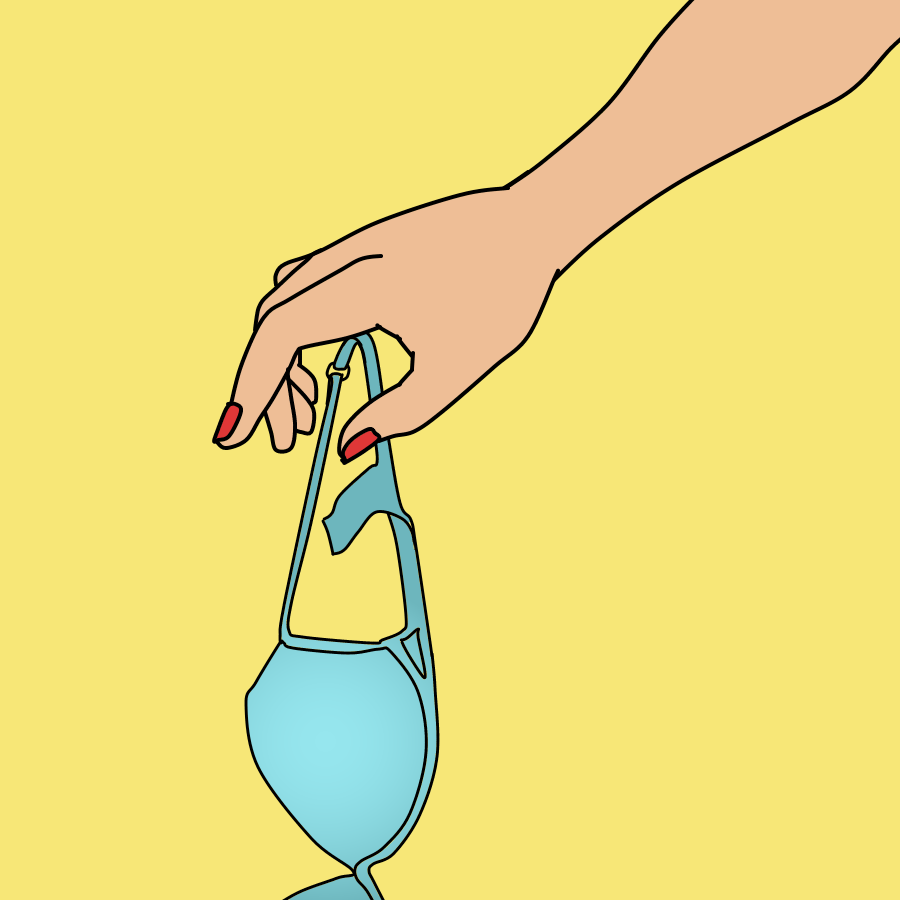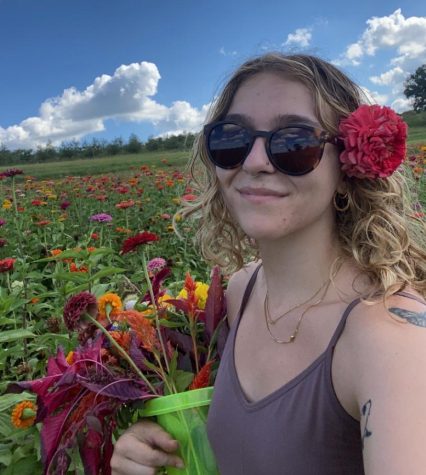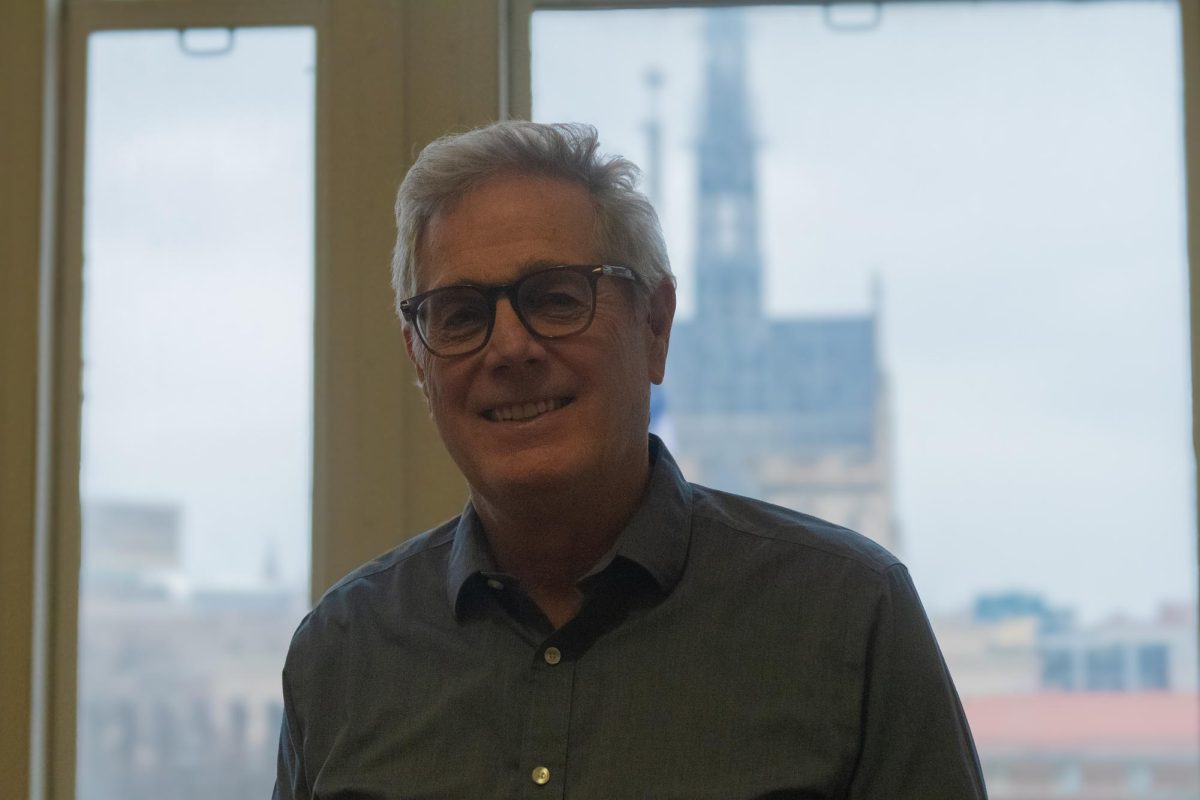Opinion | Embrace nakedness!
November 7, 2022
Every person enters the world bare. It’s one of the only universal truths that applies to every single person ever alive. Our nakedness connects humans across time and space, and there’s something innately special about that.
So why are naked bodies treated as weapons and threats? We’ve become so sensitive to nakedness that breastfeeding mothers are shamed for publicly feeding their babies. Women’s clothing is often used as “evidence” in courts of law around the world to justify sexual assault. Women exposing their chests the same way men are permitted is still illegal in the United States and is labeled “lewd” under Pennsylvania law.
Despite the overwhelming messages asking women to cover up in media, advertisements and even in personal relationships, I’ve found a way to feel more in control and comfortable with the relationship I have with my body — nakedness.
My journey first began in high school. Flashback to me dancing in my room, naked, as a junior or senior to “Formation” by Beyoncé. Fresh out of the shower, I’m dancing and singing terribly around the 15 square feet of available space in all my naked glory. Through the fearless and light-hearted act, I began to make the transition from thinking my naked body should remain censored and staunchly protected, to having freedom and fun in my skin.
By expanding a part of myself I didn’t necessarily know was suppressed, I lifted a weight off my chest and gained the ability to laugh at myself as my skin shook in undulating movements that previously terrified me. I didn’t see my skin, fat and cellulite as something that needed to be hidden — I saw it as theatrics for my performance. It added movement and depth and made my performance come alive.
However, it wasn’t until this summer that I began to force myself out of my comfort zone and fully embrace my naked body.
In June, my friends and I traveled to Myrtle Beach. This was the first beach vacation I felt comfortable enough to wear a cheeky bathing suit bottom. Dress codes in school and ones enforced by my father taught me that my body was something to hide over fear that men and boys around me would pay me unwanted, dangerous attention or that I would be a distraction to them.
Because of the position my body was placed in while I was growing up, I legitimately feared and felt uncomfortable showing my skin. One of the first times I went braless in public, I felt terribly embarrassed and thought everyone’s eyes were on my chest. I felt that I was exposing parts of myself deemed promiscuous and unnatural. I felt ashamed. Nevertheless, gradually going braless allowed me to work up to baring my cheeks at the beach. It was nothing monumental as Instagram between May and August is littered with girls in strappy swimsuits and strategic poses that accentuate their figures. I developed jealousy toward those girls because I wanted the freedom and empowerment they demonstrated in their clothing choices. I eventually understood that in order for me to feel bold and brave in my skin, I would have to train myself. So I began to.
Also while on this vacation, my friends and I had a self-proclaimed naked game night. Everyone stripped down to their underwear, and I undressed first. I was so desperate for a space I could feel safe in while experimenting with my naked form, craving outside validation intermixed with my own personal acceptance, and my beautiful friends provided that space for me.
Before we left for Myrtle, my one friend declared that for the trip, she would not have a body. You may question the rationale behind such an argument, but by pretending and ignoring the fact that she has a body, she was able to be present during our activities rather than focus on her exposed parts. Since June, I frequently repeat the mantra “it’s just a body,” and that alone has made a world of difference.
After I came back from the beach I went to the Schenley public pool a few times. As one does, I scrambled to find a bathing suit I deemed cute, and on one particular day, I picked a swim bottom-bralette combo. While I did not previously test the opacity of the fabric, I assumed it would cover what it needed to. Once I entered the water, I was met with my friend’s observation that you could in fact see my nipples. My face got hot and I submerged my chest. Anytime I brought myself above the water, I made sure my arms guarded my chest to protect all of the pool-goers from the monstrosity that are women’s nipples.
That was until I remembered — it’s just a body. I countlessly repeated the phrase until I felt brave enough to emerge from the water, hoist myself up onto the pool’s side and play the silly name-something-in-that-category game with my friends. I told myself that I am not special, that I am not the center of the universe and that no one is observing my movements through a microscope. My body, even with my nipples visible, could exist and the world wouldn’t burn in the process. A truly revolutionary discovery, I know.
While I know society accepts and praises my body type, I’ve still felt uncomfortable in my body for nearly 15 years. I don’t want to only promote smaller bodies like mine embracing self-acceptance through nakedness. The celebration of bodies is intersectional because people of all shapes, sizes and abilities deserve to feel entitled to embrace their natural selves.
What I want these few but substantial tales to exemplify is that small acts can begin to change the way we view and interact with our bodies for the better. No one deserves to feel imprisoned in a body that they’re uncomfortable with or at war in. Every body is a good body and every person deserves to believe and understand that.
Every body is worthy of love and acceptance, and I believe that journey begins with your naked form. I didn’t realize that in order to find peace inside of my skin I would have to become exceedingly comfortable in it, but now that I know, I will forever embrace nakedness — and you should too.
Grace DeLallo writes about social, environmental and political issues. Write to her at gkd5@pitt.edu.




